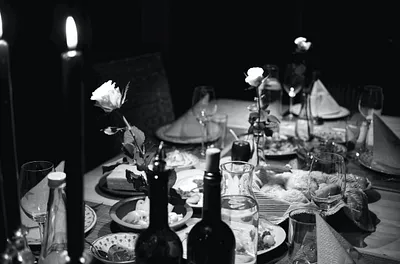Many of us are about to spend Christmas with their beloved family. And many of us are about to feel stressed, anxious, angry, resentful, disappointed, annoyed… just to name a few. Hence the question I often receive by my clients.
How do I make other people change? You don’t.
As simple – and infuriating – as that. Would it be nice if other people changed the way they treat us, in the way we want? Of course! Is that realistic? Not so much. Don’t get me wrong: I am a firm believer in open and healthy communication. Meaning that the real shot here is to change the way you communicate to others. I know, I know… that’s something you have to do, it is yet again your effort, but it’s your only option. You can change the way you communicate with others by, for instance, becoming able to express your needs, by being more vocal; or maybe by being less aggressive; or by choosing to speak in person rather than by texts; by trying to be more understanding. When you change, the dynamic between you and the other person can change, as you are giving them the opportunity to answer you in a new, different way. If they do change as well, that doesn’t mean, though, that they will change the way you want them to. Bummer!!! I know, it’s a tough one, what do we do?
What if we were to accept others for who they are?
What if we stopped wanting to change them at all? What if we distance ourselves from those who aren’t healthy for us? Too radical? Maybe, but I am trying to be realistic. So many people are hang up on the hope that others can and will change, but I’m not so sure. Those of you who are in therapy know how hard it is to change, even when you want it, even when you try, even when you are supported. How could the people around you just simply change? They rarely do. Communicating with them differently and in a forthcoming way is a real opportunity to give the relationship a twist, inducing trust. But to try to change others is nothing but a controlling and manipulative strategy that won’t bring you very far. I have felt the pain of so many of my clients in front of the same old behaviours received from their parents, siblings, sons, daughters, friends, parters: is it worth spending your life being disappointed by others? Wouldn’t it be more relieving to let go of this hope or expectation? Again, I know how terribly hard it is what I am suggesting.
I think it’s a loss that we need to grieve.
We will never have the parents we wanted, for instance. That’s just as terrifying and painful as it’s liberating. We can finally see our parents as people, before we look at them as parents. Isn’t this fair, too? Some people find it the most difficult thing to accept and digest, they really don’t want to give up what they feel as their legitimate right: to have the parents I want, the love I think I deserve. To process this loss may take a long time, but if you can do it, you really are setting yourself free, and even more: you will allow yourself to receive what your parents, or anyone, are actually giving you. Because that’s the point, when we have such tailored expectations, we won’t accept anything less; sometimes we don’t even see what people are offering us. If you open up to the idea that people can only give you what they are capable of, you may receive it with genuine gratitude and that can be a wonderful repairing experience.
Forgiveness means giving up all hope for a better past – Lily Tomlin
I find this definition of forgiveness quite fascinating, especially because it’s free from any religious or spiritual attachment and we can all relate to it. Now, coming back to what we are saying here, I’d suggest that you give up all hope for a better past, as well as all hope for a better future. And that you work to build an accepting present, that’s accessible and doable, as opposed to change others. Recognise that most of your disappointment comes from your unmatched expectations and then, stop having expectations. That will save you from a lot of pain. I know that it’s a process, we are all used to having plenty of expectations, they are part of our culture. But the present moment seems like the perfect time to start changing it.
I wish you a Merry Christmas from my heart. I hope that you will look for – and find – a renewed joy with the people you love. I hope that you will find serenity by being present, instead of dwelling on the past or anticipating the future. The cantata Cessate, Omai cessate (Cease, now cease), by Antonio Vivaldi, contains a piece called Ah Ch’Infelice Sempre (Oh, how for ever unhappy). I am going to share with you the translation of the text as well as the gorgeous music. Ask yourself: is that how I want to feel? Do I allow anyone to make me feel like that? If so, can I change that? Food for your thoughts and for your soul!
With love,
Francesca
Oh, how for ever unhappy
Ungrateful Dorilla wishes me
Oh, ever more merciless
She brings me to tears
Merciless, she brings me to tears
For me, there is no relief
For me, there is no hope
And the cruel torment and my sorrow
Only death can console






